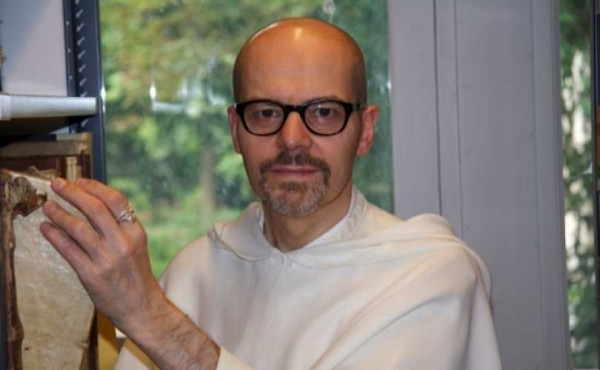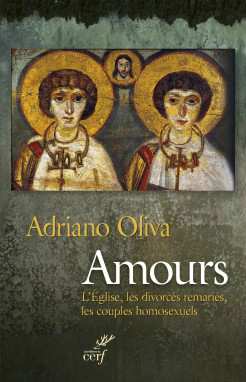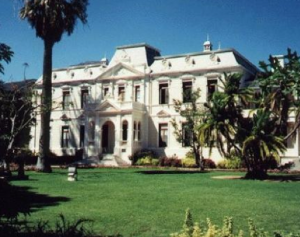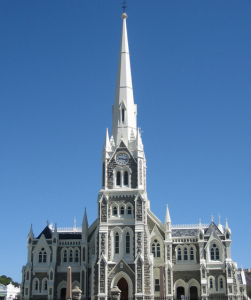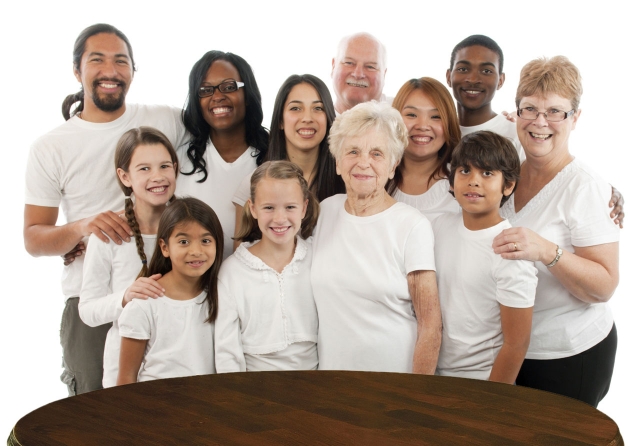Richard Sipe’s studies of celibacy helped uncover the Catholic Church’s scandal
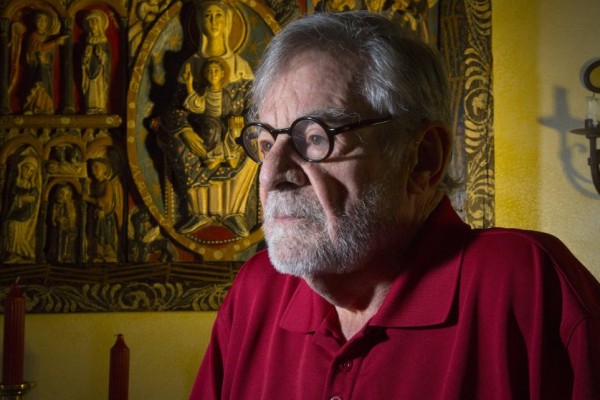
In the new movie “Spotlight,” a character describes Richard Sipe as a “hippie ex-priest shacking up with some nun.”
When the real Sipe heard this line, he laughed. The 82-year-old La Jollan is often called worse: Traitor.
Sipe never appears on screen in “Spotlight,” a dramatization of the Boston Globe’s 2001-02 investigation of the Catholic Church covering up the crimes of pedophile priests. Yet his insights, formed after decades of research on priests, permeate the film.
A psychotherapist who treated troubled clergy, Sipe drew on about 500 case files for his 1990 study of celibacy, “A Secret World.” Another 500 priests were also interviewed, plus an equal number of lay people who had been sex partners — as adults or children, willing or unwilling — of Catholic clergy.
His conclusions: At any one time, no more than half of priests are practicing celibacy. Most of the others are engaged in sexual relationships with women or men, but Sipe found that 6 percent prey on minors. (After further research, he revised that figure to 6 percent to 9 percent.)
A scholarly work from a small publishing house — New York’s Brunner/Mazel — “Secret World” nonetheless rocked a 2,000-year-old global institution.
“This is very important and has to be published,” an abbot told Sipe after reading the manuscript. “But it’s a good thing the church no longer castrates or burns at the stake, or you would be in trouble.”
While he escaped execution, Sipe has been verbally flogged for 25 years. TheMediaReport.com, a website decrying “media bias in coverage of sex abuse in the Catholic Church,” calls Sipe “an angry ex-priest” who uses “the issue of clergy sex abuse as a means to advance his attack on the Catholic Church, especially its teachings regarding human sexuality.”
Victims of sexual abuse, though, praise the man and his work.
“He’s an absolute hero,” said David Clohessy, executive director of Survivors Network of those Abused by Priests (SNAP). “He’s just a very wise and compassionate man who has made an enormous contribution to understanding and exposing this crisis.”
In his office at home, the walls are covered with reproductions of murals depicting the Last Judgment. A computer dominates one desk, a sculpted nude female torso another. In his lair, Sipe looks neither angelic nor demonic. He looks frail — a walker waits by his chair, thanks to old skiing injuries — yet joyful.
“I don’t have any regrets about what I went through,” he said. “I couldn’t have accomplished any of this without being a monk and a priest.”
‘What it’s about’
Sipe grew up in Minnesota, part of a large Catholic family. He remembers his parents as faithful, not fanatical. It was his idea, not theirs, for the naive ninth-grader to enter a Benedictine seminary.
“I was one of 10 kids,” he said. “You had to stand out in some way!”
He was allowed to date through high school, and 70 years later can still rattle off the names of girlfriends. His monastic preparations continued, though, through college. He became a Benedictine monk in 1953 and a priest in that order in 1959, vowing obedience, poverty and chastity.
That last vow didn’t worry him, Sipe said, thanks to his ignorance. “You don’t know what it’s about, what sex is about, what an adult sexual relationship is or what it’s like to fall in love.”
While studying psychiatry and religion in Rome, he grew fascinated by the question of why some priests — such as the Very Rev. Ulric Beste, a Vatican official and a mentor — remained celibate and others did not.
He continued his studies at St. John’s University Mental Health Institute in Minnesota and as a fellow at the Menninger Foundation. At Maryland’s Seton Psychiatric Institute, a hospital where struggling priests were sent for treatment, he collected data on the sexual lives of his patients.
In 1966, Margaret Mead toured Seton. The anthropologist encouraged the priest to study this matter in a dispassionate manner. To this day, Sipe doesn’t refer to errant priests as “pedophiles.”
“I say they are priests who have sex with minors,” he said.
Sipe’s tone, especially in “Secret World” and a 2003 sequel, “Celibacy in Crisis,” is free of outrage and judgment. Some victims are disturbed by this clinical approach, but not SNAP’s executive director.
“There’s just way too much blaming and shaming and anger by people from all sides in this crisis,” Clohessy said. “Richard does a superb job of focusing on behavior and not beliefs, on facts and not theories.”
He’s also more than a scholar. As a fellow priest, he understood his peers’ struggles.
“I was part of the culture,” he said. “And I was a data keeper.”
That data would help direct the Boston Globe’s investigation, which inspired similar probes. As the church’s sex scandal erupted around the world, it seemed that no diocese was free of predatory priests — including San Diego.
Persona non grata
In his 30s, Father Sipe fell into a severe depression. In therapy, he came to the conclusion that he could no longer serve as a priest. In 1970, he was granted dispensation from his priestly vows.
Soon after, he married Marianne Benkert, a former nun and psychiatrist who had worked at Baltimore’s Loyola University. He opened a private practice, taught, wrote and devoted himself to his new role as husband.
Soon, he was a father. Walter Sipe, the couple’s son, graduated from Harvard and enrolled in the UC San Diego School of Medicine. His parents bought a La Jolla home in 1996, where their son took up residence. Three years later, after he graduated, his parents moved in.
Sipe was in La Jolla when the Globe learned of his research. In October 2001, he and Marianne flew to Boston to meet with the journalists. After the Spotlight team’s first stories on sexual abuse by clergy appeared in 2002, Sipe was contacted by media from around the world.
He’s still sought as a source and an expert witness. To date, he’s testified in about 250 cases brought against Roman Catholic priests accused of rape and other sexual crimes. He’s also been invited to speak on college campuses, in public forums, in conferences addressing this crisis.
One place he hasn’t been invited: The offices of the Roman Catholic Diocese of San Diego.
“I’ve been blackballed,” Sipe said. “Bishop Robert Brom sent his chancellor here to say I was not welcome in the chancery. If I came, it would only be in the presence of a lawyer.”
In San Diego, so many victims came forward that the diocese filed for Chapter 11 bankruptcy in February 2007. Later that year, the church agreed to pay $198.1 million to 144 victims. The diocese’s bankruptcy petition would be terminated in January 2014.
The diocese, Robert McElroy said when he was named San Diego’s bishop this March, had to do a better job of preventing these crimes.
“We can never relax on that issue,” McElroy said then. “We can never think we have done enough to have put that in the past.”
This week, the diocese declined several Union-Tribune requests to outline steps it has taken to prevent a recurrence.
In the long run
These crimes are not committed only by Catholic clergy, a truth that was underscored last week by two news stories. Former Subway spokesman Jared Fogle was sentenced to prison for possessing child pornography and having intercourse with two minors; and the Associated Press reported that military prisons contain more sexual abusers of children than any other type of offender.
Next year, Sipe himself will testify in child sex abuse cases involving two non-Catholic religious leaders.
Yet he is convinced that the crisis in the Catholic Church is unique, and rooted in that institution’s attitudes toward sex and gender. While he welcomes the new tone set by Pope Francis, he doesn’t expect any rapid changes.
“I think there is something starting,” he said. “But the real change will not come until the church allows optional celibacy and the ordination of women.
“And these changes will cause more problems, and then more changes. This is an evolutionary process.”
Change is constant, even in an institution that seems to move at a glacial pace. Those images of the Last Judgment on the walls of Sipe’s study? One is a reproduction of an 11th-century work, showing a welcoming Christ in a vast paradise. Hell is almost an afterthought, shunted to a small corner of the canvas.
“Now look at Michelangelo,” Sipe said, gesturing to the framed poster of the 16th-century painting on the Sistine Chapel’s ceiling. Half of this masterwork is devoted to souls being hurled into damnation.
Sipe laughed. “That says it all.”
Years ago, Sipe stopped attending weekly Mass. He’s not a member of any parish and doesn’t regularly partake of the sacraments. But ask if he’s given up on the faith of his childhood, and he smiles.
“My view of being a Catholic is that I am a Catholic in the long run of things,” said the former priest and ex-monk. “I am a part of the change.”
Complete Article HERE!

